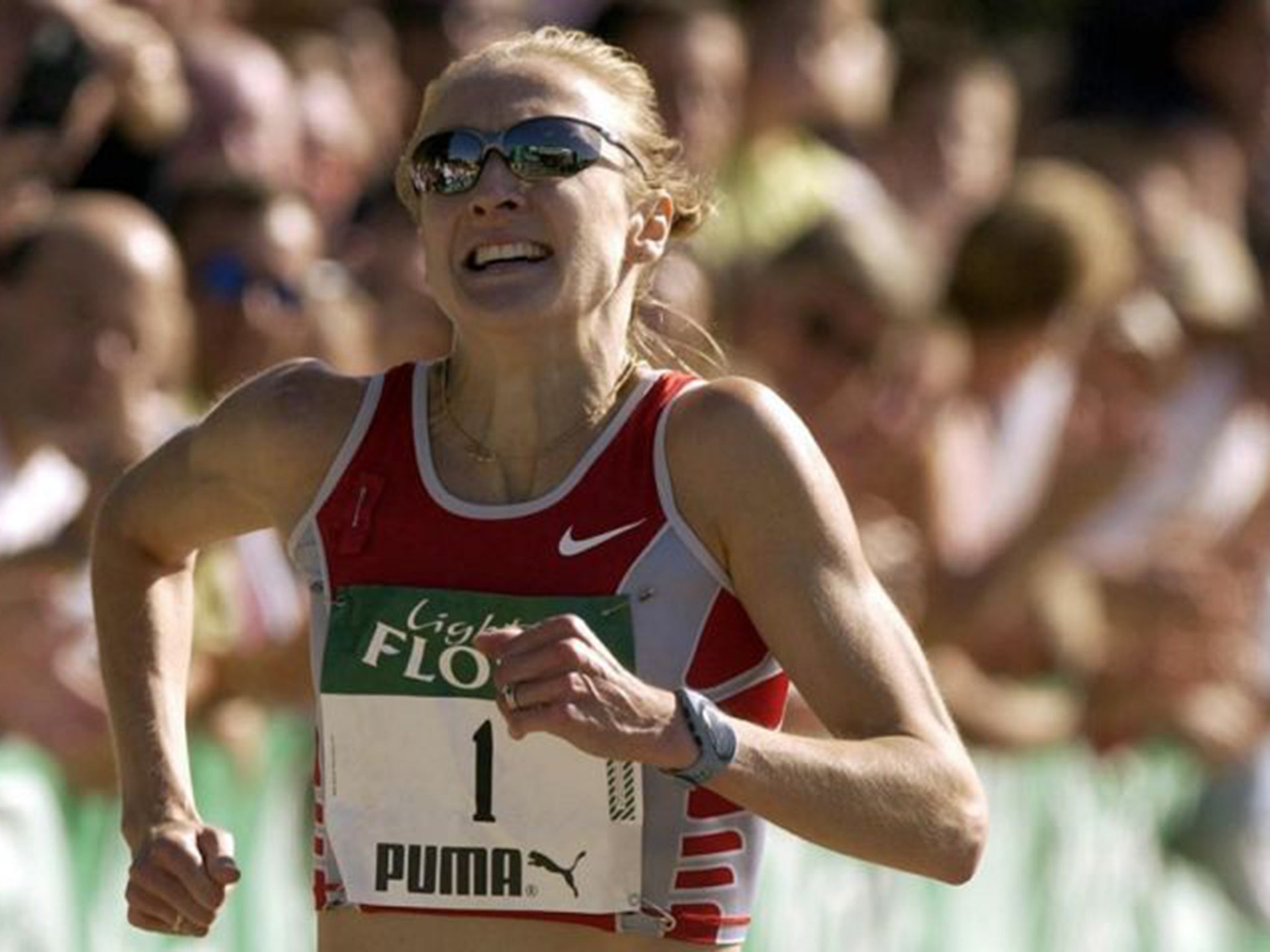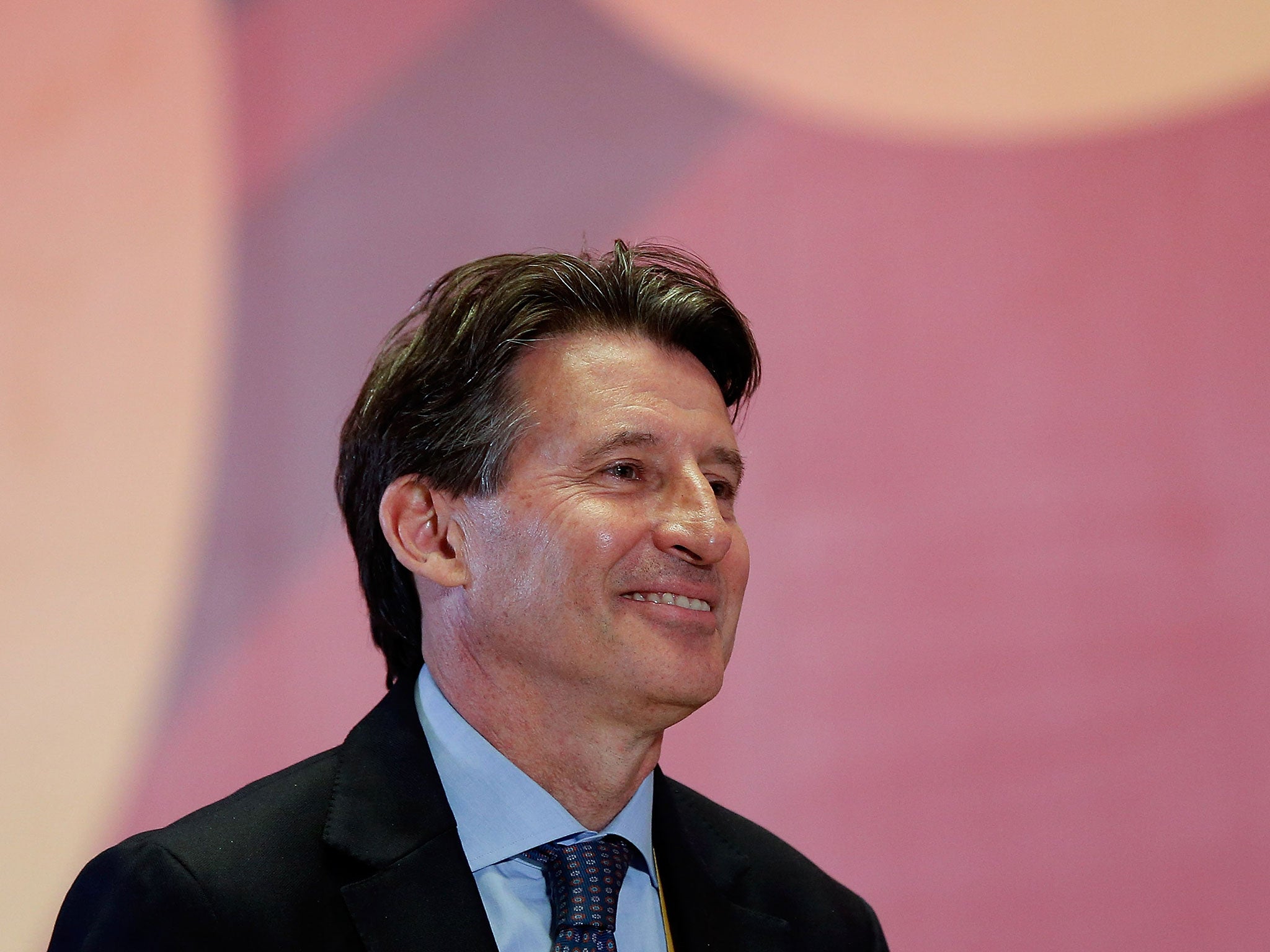Paula Radcliffe blood data is leaked – but she won't release more
Runner claims she is being 'forced, pushed and almost abused'

Paula Radcliffe has pledged to keep her blood data private despite her three supposedly abnormal readings having been made public.
The British marathon runner said the pressure on her to divulge the make-up of the readings from the leaked database of 12,000 samples from the IAAF, athletics’ governing body, was tantamount to abuse as their exact nature was revealed by Sky News. She also insisted that, were she to release further information, it would risk “another innocent athlete being put through what I’ve been put through the last few months”.
The marathon world record-holder’s three “suspect” off-scores, used to measure any abnormality in an athlete’s blood, were 114.86, 109.86 and 109.3. At the most basic level, a score of 103 can trigger suspicion from the doping authorities.
But two of those figures, all three of which were taken at altitude, fall under the allowed cut-off point for athletes at altitude (111.7) while the highest reading was taken after she had run a half-marathon in 29C heat in Portugal.
Under World Anti-Doping Agency rules, any such samples taken within two hours of competition are deemed invalid because of the knock-on effect that immediate competition can have on any data recorded.
The IAAF has already re-analysed Radcliffe’s own data and the Briton says she has asked Wada to do the same, as well as independent experts. However, despite the publication of the readings, she said she would not bow to pressure to make all her blood data public.
“This is going against the advice of the governing bodies of the sport,” she told the BBC. “I don’t need to do that. I know that I’m clean.
“I’m not being forced and pushed and almost abused into giving a knee-jerk reaction to something that goes against other people that I trust, that are asking me at this moment to put my trust in them, to stand with them in order to protect a lot of other innocent athletes, because I do not want to see another innocent athlete put through what I’ve been put through the last few months.”
As for the latest publicised findings, she explained in a separate interview that independent experts had cleared her of any wrongdoing.
“They can tell me you don’t have three values that crossed any threshold, not when you apply the context of whether the test followed a period of altitude training or was carried out at altitude,” she told Sky. “Not when you apply whether the two-hour rule is not valid. That rules out two of the tests they are referring to and the other is not above the threshold.”
Radcliffe has been in the spotlight since effectively being outed on Tuesday by Jesse Norman MP, the chairman of Parliament’s Culture, Media and Sport Select Committee, which was looking into the issue of doping in sport.
Sebastian Coe, president of the IAAF, said: “I think everybody knows Paula is a clean athlete, she had to defend herself, which I thought she did very well the other day, but I don’t think she should have been in the position of having to do that. I don’t believe any athlete, any person, should be forced to put private information in the public domain like that.”
The athlete has denied any wrongdoing but the leading sports scientist Ross Tucker, a specialist in endurance running, has urged Radcliffe to go a step further and fully divulge her blood data to remove any doubt. “The off-score values are only part of the picture, which is why three off-scores is not conducive of anything even if they are close to those cut-off limits,” he said.

“I still feel her explanations are possible and complete data would make them plausible and that equals trust. But the... opaqueness make it less plausible, at least to me. It’s the action, not necessarily the data, that speaks loudest,” Tucker added.
The IAAF anti-doping head Thomas Capdevielle has written the select committee to highlight the governing body’s “considerable dismay” at Radcliffe effectively having been outed by it. Prior to the meeting, to which the IAAF was not invited, it wrote to the committee warning that it was of “critical importance that no names or individual blood data or results are discussed in the context of a public hearing or otherwise in the course of proceedings before the committee”.
Timeline of a scandal: How the doping furore has unfolded over the last year
December 2014 A German TV documentary claims up to 99 per cent of Russian athletes are guilty of doping, with officials allegedly taking payments from athletes to cover up tests and supply banned substances. The Russian Athletics Federation rubbishes the claims as “lies” and threatens legal action. “It is possible we will take appropriate legal action for slanderous allegations,” says RAF president Valentin Balakhnichev. Paula Radcliffe calls for countries found to break doping rules repeatedly to be banned from future Olympic Games.
June 2015 Alberto Salazar, coach of Mo Farah, is accused of violating anti-doping rules by BBC’s Panorama, along with US athlete Galen Rupp. Both deny the claims.
August The Sunday Times and a German broadcaster report widespread doping and cover-ups among athletes at the sport’s leading events after IAAF test data is leaked. IAAF vice-president Lord Coe attacks the claims as a “declaration of war” on his sport. Twenty-eight athletes suspended by the IAAF after samples from 2005 and 2007 World Championships are retested. Two Kenyan athletes – sprinter Joyce Zakary and hurdler Koki Manunga – suspended after positive tests during World Championships in Beijing.
September Conservative MP Jesse Norman suggests London Marathon winners and “potentially British athletes” were implicated in the doping scandal. Marathon record holder Radcliffe denies cheating after being “effectively implicated” by Norman, saying: “These accusations threaten to undermine all I have stood for.” Sky News reveals Radcliffe’s test data.
Join our commenting forum
Join thought-provoking conversations, follow other Independent readers and see their replies
Comments
Bookmark popover
Removed from bookmarks